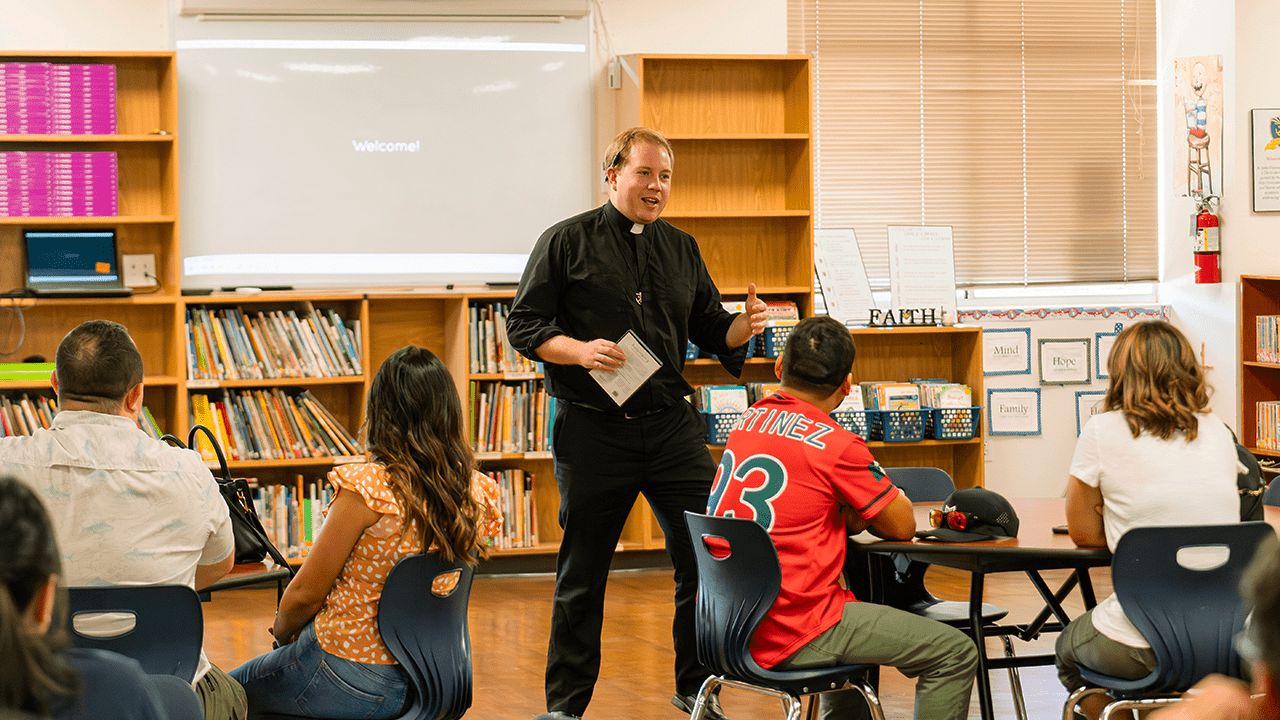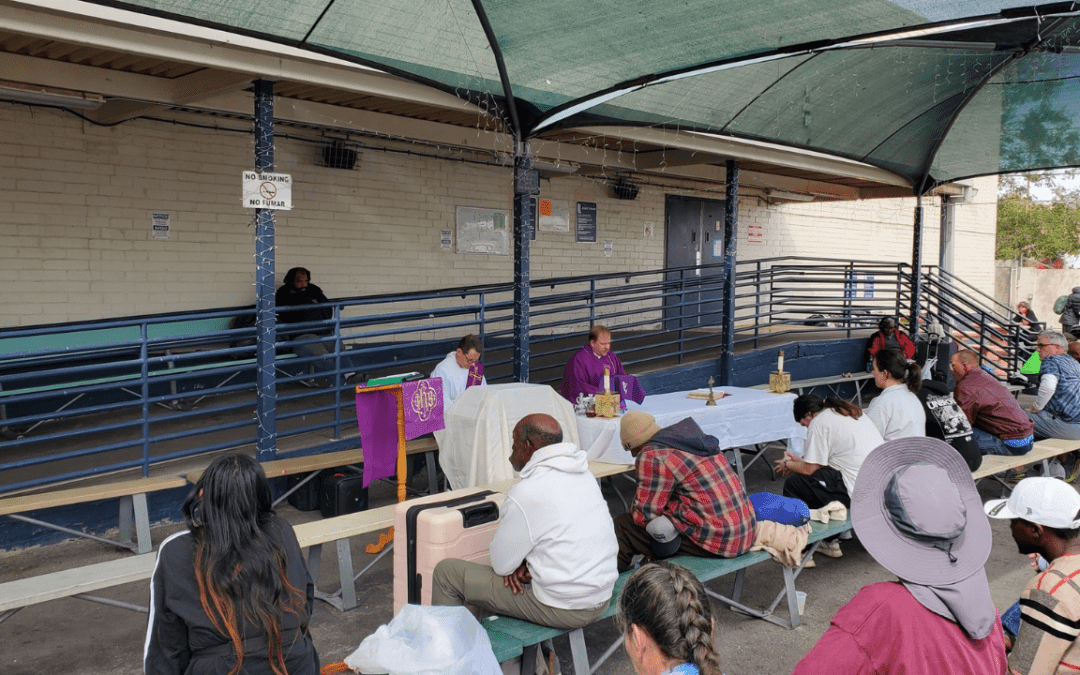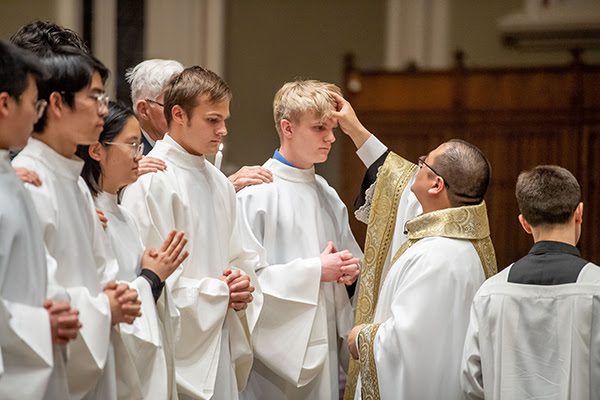As a Holy Cross priest pursuing higher studies, it is no surprise that much of my day is spent in study. But as important as my offering of my work is, it cannot replace my work as a priest. I have been ordained not only to serve the church in my ministry as an academic but primarily and most importantly as a priest. To preside at the Eucharist, to forgive sins in Christ’s name, and to extend Christ’s anointing to the sick and suffering: this is what Christ has called me to do.
Often, those of us in Holy Cross seeking further degrees do so outside the context of our own apostolates. The Congregation wants us to receive the best possible training, wherever that might be. There are challenges with this, but one of the great blessings is that those of us in studies often seek out places in the local church where we can be of service to the Church even in the midst of our programs. Typically, that takes the form of living in a parish near where we study in order to assist at masses and help with the day-to-day life of the parish. We take on regular masses and confessions, and we speak with RCIA candidates or the youth group. Even as I write this, I am preparing to drive to a retreat center on the Maryland coast to help with a retreat for a local high school.
This way of responding to the needs of the local Church wherever we might be has deep roots in the history of the Congregation. Even prior to the Congregation’s founding, Blessed Basil Moreau brought together a group of “Auxiliary Priests.” Moreau’s purpose was to assist the local Church by providing priests who could preach retreats and missions, instruct young people, and assist the local clergy in their service to the People of God. And this service to the local Church continues throughout the Congregation. Priests at our universities and colleges, who have full time responsibilities on campus, devote their weekends and summers to providing help to parishes nearby. Some even drive many hours each way to serve communities who might not otherwise have a priest to provide the sacraments on the weekend, or to help the local priest get a break for retreat and recollection.
We typically think of the word “auxiliary” as a sort of supplement, and welcome but not necessary help to the work already being done. In the Christian tradition, though, auxiliary has a much stronger and even dramatic notion. In ancient Rome, the auxilium were the most skilled back-up troops for the Roman Legion. They were sent into the fray when most needed, and kept in small groups called cohorts because that size was more nimble and ready to respond to whatever the need might be. In Christianity, auxilium is used to describe the grace that God gives us to assist us in Christian discipleship. But this assistance isn’t simply like an extra pair of hands when we try to install a shelf. It’s more like when Gandalf brings the Riders of Rohan to Helm’s Deep in Tolkien’s The Two Towers, or the triumphal cavalry charge at Minas Tirith in The Return of the King.
Often our going out in response to the needs of our local church doesn’t have the feeling of a great cavalry charge. And I will be the first to agree that I am not some sort of expert in reserve. The work I find already being done in these communities is inspiring and teaches me so much about what proclaiming the Gospel can mean. But perhaps I could imagine a bit more like that auxiliary charge. My driving down the highway to be with these high school students is somehow tied into God’s desire to pour out grace upon them, however feeble the instrument might be. God sends aid to them as they pursue him, just as he does for all of us. Even in the midst of my studies and academic work, my Holy Cross history opens me to the needs of the People of God,wherever they might be. And by God’s grace and providence, we can be that help, that auxilium, to all those who seek after the Lord.
photo: Fr. Andrew Fritz, C.S.C., teaching OCIA at St. John Vianney Catholic Church in Goodyear, Arizona
Published on November 22, 2023




